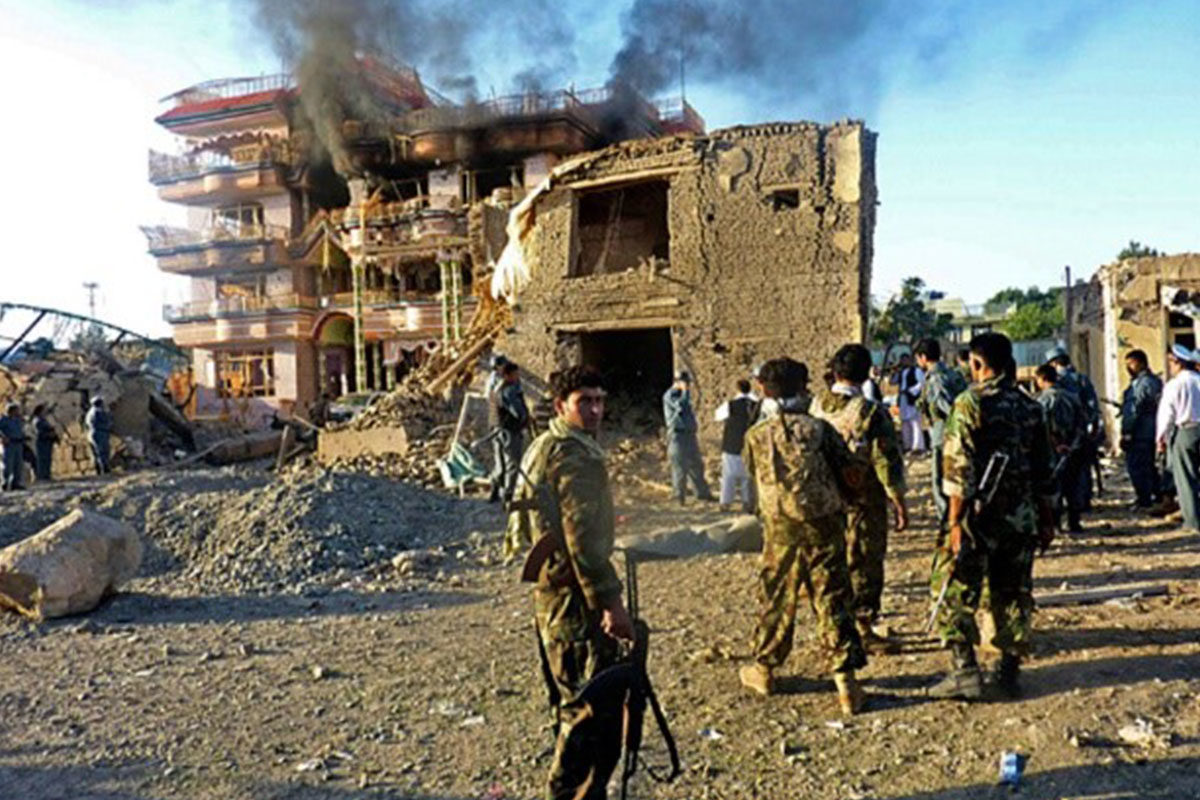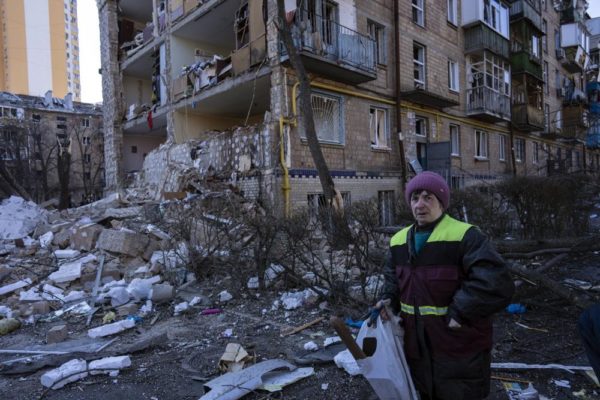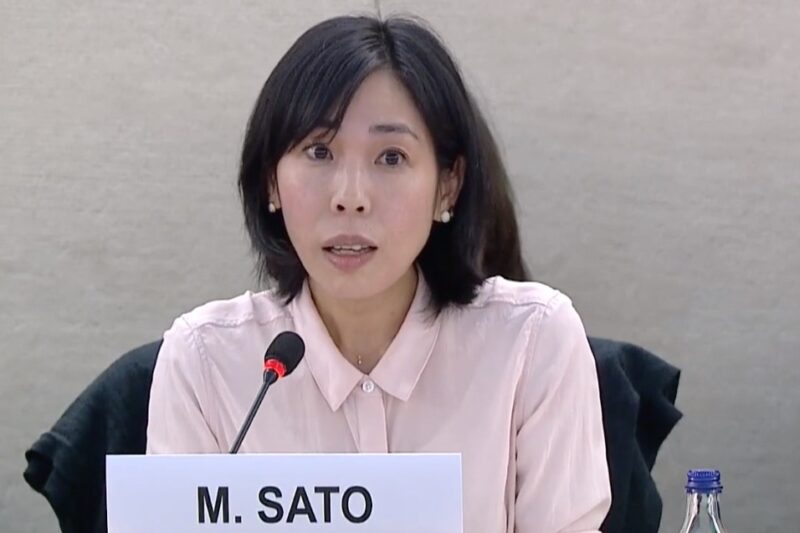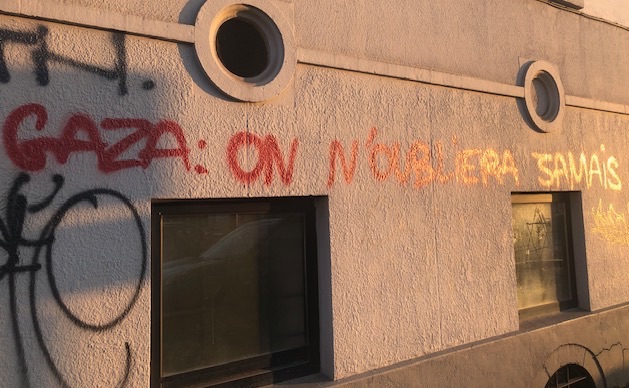Differences in treatment and contrasting in war, Afghanistan, and Ukraine

The sad anniversary of the Taliban takeover of Afghanistan on 15 August mainly attracted the attention of the Afghan people, while the war between Ukraine and Russia remains the main interest of the Western world.
The war in Ukraine is having an impact on the situation in Afghanistan. The Afghan people have raised many questions about how the international communities are behaving in response to their plight. The UN, the EU, NATO, the US and other countries have reacted quickly to the situation in Ukraine, whether through direct and official support in the form of money, equipment and training, or through expressions of moral support and economic sanctions.
On the other hand, no strong or significant action is envisaged with regard to the humanitarian crisis in Afghanistan.
Although the Afghan people understand and share the suffering of the Ukrainian people, it is important to realise that this new crisis in the West also has a direct impact on the situation in Afghanistan. An emerging tragedy should not overshadow an existing one.
One year after the collapse of the country, the mass terror that has taken over Afghanistan has caused more than 1,000 confirmed deaths, while thousands of people have been arrested, imprisoned, tortured, accused of non-existent crimes and sentenced to death by the Taliban. Some of them have simply disappeared without a trace.
According to reports published by international organisations and secret interviews with Afghans on the ground over the past few months, it is confirmed that schools, universities and workplaces for women have been closed down and that freedom of expression is now closed to them.
The people of Afghanistan are very critical of the international community. Hundreds of thousands of citizens have been displaced to neighbouring countries and to Europe without any real assistance, and often even without food. Countries such as Iran and Pakistan are now closing their borders to them.
Again, the comparison with the aid given to Ukrainian refugees is glaring. European countries, and others, have opened their doors wide and provided incredible support to the victims of this war, which is as unjust as the war waged by the Taliban on the legitimate people of Afghanistan. Whether it is transportation, accommodation, administrative or medical assistance, rapid integration into the education system and all other essential areas, Ukrainian expatriates have been supported by the international community.
Although it is clear that the Ukrainian crisis required a strong and quick response, it is terribly frustrating to see how, depending on the ethnicity of the refugees concerned, foreign policies can vary from the worst to the best.
In response to my question about the refugees from Afghanistan in Belgium, Nasiba Jan was evacuated last year by Belgium said: “I share my deep sympathy with the people of Ukraine, but do not forget that we also need strong support here and in Afghanistan. We are facing aggression also inside my country and all over the world it is very painful. And the international institutions are thinking that Afghanistan is safe and peaceful, which is not true.”
After 9/11, the international coalition, under the banner of NATO, entered Afghanistan to defeat terrorism.
During the 20 years since, billions of dollars have been spent, thousands of foreign soldiers and tens of thousands of Afghan army members and civilians have been killed. In the same period, how many suicide bombings in schools, hospitals, wedding parties, courtyards and even mosques have been committed in Afghanistan?
Benafsha Mobariz, an Afghan journalist who is living in Pakistan (under a pseudonym) said this is an injustice and that discrimination is very visible in today’s world. She said: “We are human and every day we suffer“. She criticised international organisations and said: “I am not the kind of person who does politics, but I think people should stand up and stop the war all over the world, we need more unity and momentum for everyone.”
She shows solidarity with the Ukrainian people, but also protests the loss of rights for Afghans, adding: “It is chaos all over the world; we are tired of war, everyone is suffering like us, but the West and the United States have forgotten about Afghanistan, and are closing their eyes to not see the Tajik and Hazaras genocides.”
The whole world woke up in shock
On 24 February 2022, the Russian invasion of Ukraine, decided by President Vladimir Putin, began in force. It is considered the largest conventional military attack in Europe since World War II and a bold attempt to seize the sovereignty of a state. The whole world woke up in shock.
A year later I, as a journalist in exile working for Brussels Morning and Latitudes, was able to ask the Secretary General of NATO these questions:
“NATO is the most powerful military organisation in the world, however, according to my information, some NATO allies are trying to start negotiations with the Taliban. Do you think this is really the time to talk to these people who still haven’t cut their ties with Al Qaeda. Are you going to pressure the Taliban to accept women’s rights, to grant freedom to the people and to end the genocide in Afghanistan?”
“We are putting significant pressure on the Taliban regime”
NATO Secretary General Jens Stoltenberg replied: “What we are seeing in Afghanistan right now is a tragedy for the Afghan people, especially for Afghan women. The first anniversary of the Taliban takeover in Kabul is a bitter reminder of the brutality of the Taliban regime. And it is also, of course, a bitter moment for all those who have worked for so many years for a free and democratic Afghanistan that respects the rights of men and women. What the NATO allies are doing is they are stepping up their humanitarian support, support for human rights groups and international communities of Afghans.”
Stoltenberg added: “We are putting significant pressure on the Taliban regime, including imposing tough sanctions on that regime. Let me add that we are, of course, aware that there are important lessons to be learned after all these years in Afghanistan. I think the most important lesson… is to fight terrorism, which was the main reason we were in Afghanistan. We have achieved a great deal in the fight against terrorism. Allies and partners have worked very hard to create a more peaceful and democratic Afghanistan. Now we also have to support Ukraine very strongly to keep that country free and at peace.”
According to the NATO chief, the war in Ukraine is entering a critical phase, and NATO is strong and more united than ever. We support the Ukrainians, but the price we pay is money. But the price Ukrainians pay is measured in lives. Lives lost, every day, and we will all pay a much higher price if Russia and other authoritarian regimes see their aggression rewarded. We will agree on a new comprehensive programme of assistance for Ukraine in the longer term, consisting of concrete projects, but also in the short term, including anti-drone equipment, secure communications and fuel.

Stoltenberg said the war in Ukraine did not start in February. It started in 2014. What we saw in 2022 was an escalation with the second invasion by Russian forces. And when that happened, NATO was very well prepared. Because since 2014, for the first time in its history, the alliance has deployed combat-ready troops to its eastern flank, to the Baltics and to Poland, and increased force readiness and defence spending.
Since February, NATO has doubled the number of battlegroups from four to eight, and increased their size, for example, in Lithuania, Estonia and Latvia. In addition, the United States has increased the number of troops in Europe from about 70,000 to more than 100,000 in recent months. Finally, more than 40,000 troops are now in direct NATO command in the eastern part of the Alliance.
According to a comparison of figures published on the NATO website, the number of troops deployed in Afghanistan was very high compared with the total number of troops deployed in the whole of Europe. Between 2010 and 2012, the International Security Assistance Force (ISAF) had 400 military bases throughout Afghanistan, and approximately 130,000 troops. All 30 NATO member countries and 42 additional countries contributed troops to ISAF. The NATO-led Resolute Support Mission (RSM) in Afghanistan was launched on 1 Jan 2015, after the completion of the ISAF mission. Its purpose was to provide training, advice and additional assistance to Afghan security forces and institutions.
In April 2017, US forces dropped the GBU-43/B Massive Ordinance Air Blast (MOAB) used in the Nangarhar area of Afghanistan, and this bomb, the largest in existence, had long-term effects on the residents of Mohmand Dara village.
Finally, after 20 years of NATO presence in Afghanistan, thousands of soldiers killed, and billions of dollars spent, the troops, under the instigation of the US, have been withdrawn from the country. After obtaining this withdrawal of the international armed forces on the basis of false promises, the Taliban very quickly returned to power.
The Afghan people have lost the essence of their lives and are trying to survive under this totalitarian regime.





